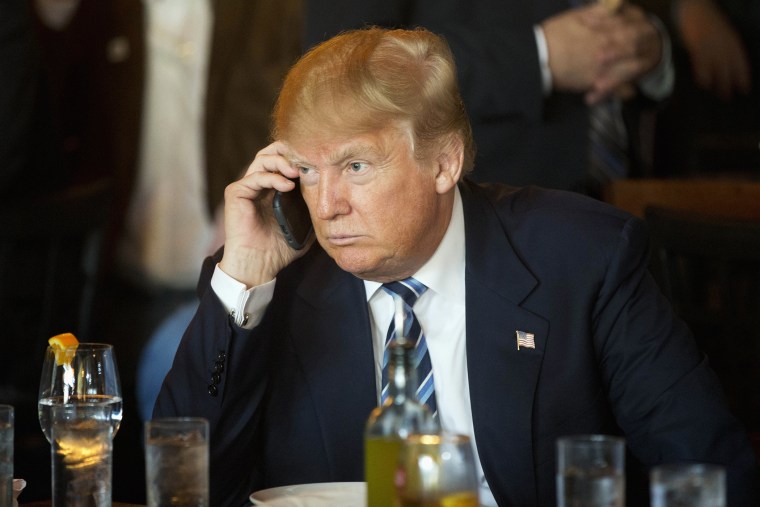Politico published a rather unflattering piece yesterday on Donald Trump's "diplomatic learning curve," which has apparently proven challenging for the amateur president. The article noted one instance, for example, in which Trump studied a briefer's map of South Asia and "mispronounced Nepal as 'nipple' and laughingly referred to Bhutan as 'button.'"
Noting the similarities between this and a scene from "The Simpsons," Jon Chait noted, "It's like having Homer Simpson as president, but dumber."
The same Politico piece went on to note instances in which Trump "appeared confused" by the existence of smaller countries sandwiched between larger countries, caused a diplomatic stir by praising China's Xi Jinping during a meeting with Japanese Prime Minister Shinzo Abe, and showed a "bizarre" fascination with calling French President Emmanuel Macron for no apparent reason.
But the part of the piece that stood out for me was Trump's reported habit of wanting to call Shinzo Abe in the middle of the afternoon, when it was the middle of the night in Tokyo.
"He wasn't great with recognizing that the leader of a country might be 80 or 85 years old and isn't going to be awake or in the right place at 10:30 or 11 p.m. their time," said a former Trump NSC official. "When he wants to call someone, he wants to call someone. He's more impulsive that way. He doesn't think about what time it is or who it is," added a person close to Trump.In the case of Abe and others, Trump's NSC staffers would advise him, for instance, that "the time is messed up, it's 1 o'clock in the morning" and promise to put the call on his calendar for a more diplomatically appropriate time. Former national security adviser H.R. McMaster would assure him: "We can try to set it up."
This happened, Politico reported, "several times." One diplomatic source said explaining the time-zone issue to the American president came up on "a constant basis."
And for me, that's the real punch-line. If it happened once, and Trump said, "Right, of course, let's work out a time that works for everyone," it'd be unremarkable.
But the fact that this came up on "a constant basis" offers some insights into the president's capacity for learning.
By way of a defense, the Heritage Foundation's James Carafano told Politico, "If people are looking for more polish and more kind of conventional statecraft and that's their metric for Trump learning, I think they're going to be disappointed."
Or put another way, if we're looking for an American president who understands how time zones work, the electorate will simply have to wait for Trump's successor.
